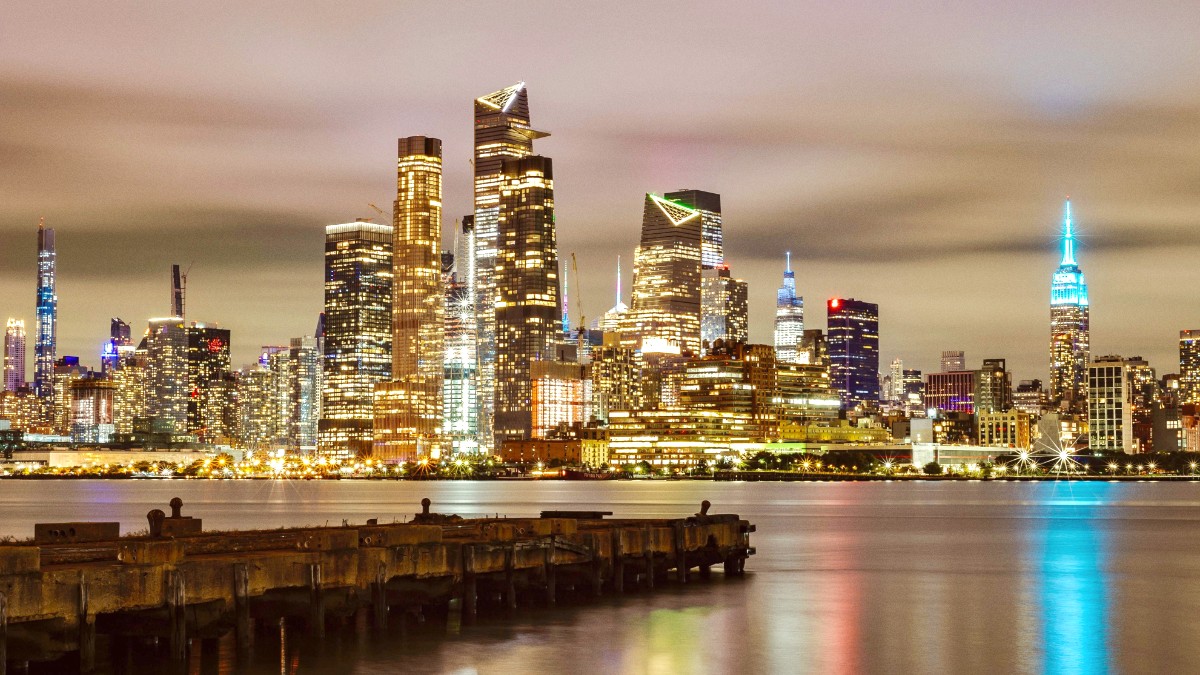
New York, USA
Major U.S. mobile carriers (AT&T, Verizon, T-Mobile) present widespread coverage. Signal strength may vary in very rural or mountainous areas. Prepaid SIM cards are available at carrier stores and electronics retailers. eSIM options from major carriers or third-party providers present a digital activation without a physical SIM. For an eSIM, explore options with Airalo.
English is the primary language. Language barriers are very rare in tourist-facing businesses. The Google Translate app (with offline downloads) presents quick translations. For language learning, Rosetta Stone can introduce key phrases. Standard polite phrases like "please" and "thank you" receive appreciation.
Retail shops generally open from 10:00 AM to 6:00 PM, often closed Mondays. Restaurants operate with distinct hours: breakfast (7:00-11:00 AM), lunch (11:30 AM-2:00 PM), and dinner (5:00-9:00 PM or later on weekends). Many restaurants close between lunch and dinner service. Banks typically open weekdays from 9:00 AM to 5:00 PM. Post offices follow similar weekday hours.
New York, as part of the United States, adheres to the Americans with Disabilities Act (ADA), which mandates accessibility. Newer public buildings, transportation facilities, and many businesses conform to accessibility standards, with ramps, elevators, and accessible restrooms. Older historic buildings may present limited accessibility due to their nature.
The Hudson Valley is generally considered progressive and welcoming. LGBTQ+ individuals and couples generally feel comfortable and safe. New York State has robust anti-discrimination laws protecting individuals based on sexual orientation and gender identity. Generally, respect privacy, avoid sensitive topics with strangers, and confirm hours for attractions, especially seasonal ones.
Protecting the Hudson Valley's natural environment is a priority for its long-term health and continued appeal. Your travel choices shape this future.
The Hudson Valley features numerous state parks and land trusts dedicated to open space conservation. These initiatives maintain biodiversity and preserve scenic landscapes.
Recycling is widespread and mandated in New York State. Most accommodations and public facilities offer recycling bins for various materials.
Though water resources are ample, responsible use is encouraged. Practice shorter showers and turn off taps when not in direct use.
Look for accommodations with green certifications or those that declare their environmental policies (local food sourcing, energy efficiency, water conservation). For eco-friendly stays, platforms like Ecobnb highlight suitable properties. Some tour operators focus on low-impact outdoor activities, emphasizing nature conservation.
Many airlines present carbon offset programs during booking. Metro-North trains from NYC represent a more energy-efficient alternative to driving or flying, reducing carbon output. When exploring the valley, prioritize walking, cycling, or public transport where feasible, or carpool for rented vehicles.
Choose to stay at locally-owned B&Bs and independent hotels. Dine at independent restaurants sourcing local ingredients. Shop at local boutiques and artisan shops. Attend local festivals and farmers' markets, events that directly benefit local residents. Look for "Made in the Hudson Valley" products. Buy directly from farmers for fair compensation. Support conservation initiatives through purchases at sites like The Rainforest Site (GreaterGood). Research reputable local organizations for charitable giving.
Tailor your Hudson Valley journey with these time-based and interest-based itinerary suggestions. For bookable experience components, GetYourGuide presents many options.
Option 1 (NYC access): Arrive in Beacon via Metro-North. Morning: Dia Beacon. Lunch: Main Street shops. Afternoon: Hike Mount Beacon or use incline railway. Dinner: Beacon's acclaimed restaurants. Stay overnight in Beacon.
Arts & River Towns (Beacon & Cold Spring): Day 1: Arrive Beacon, Dia Beacon, Main Street, dinner. Day 2: Mount Beacon hike, Newburgh-Beacon Ferry, Cold Spring antique shops, dinner. Day 3: Stonecrop Gardens or waterfront stroll, brunch, depart.
Base in Kingston or Poughkeepsie. A rental car generally makes this itinerary smoother. Day 1: Kingston (Stockade District, Rondout waterfront). Day 2: Beacon (Dia Beacon, Mount Beacon, Main Street). Day 3: Hyde Park (FDR Home, Vanderbilt Mansion, Val-Kill). Day 4: New Paltz (Minnewaska State Park, town exploration).
Two-Week In-Depth Exploration: This duration makes possible a slower pace and immersion. Combine elements of the one-week itinerary with deeper dives into specific areas. Include more extensive hiking, more winery/brewery visits, and potential day trips to the Catskills or Berkshires. Two or three nights in each chosen base location reduces travel time between accommodations, and this timeframe uncovers many hidden gems.
Shape your itinerary by your main interests, focusing on specific themes.
Explore Washington's Headquarters, FDR Home, Vanderbilt Mansion, Olana, Kingston's Stockade, and West Point.
Winery/brewery tours, farmers markets, apple orchards, and farm-to-table dining experiences abound.
Hiking the Shawangunk Ridge, kayaking on the Hudson, cycling rail trails, rock climbing in The Gunks, and eagle watching.